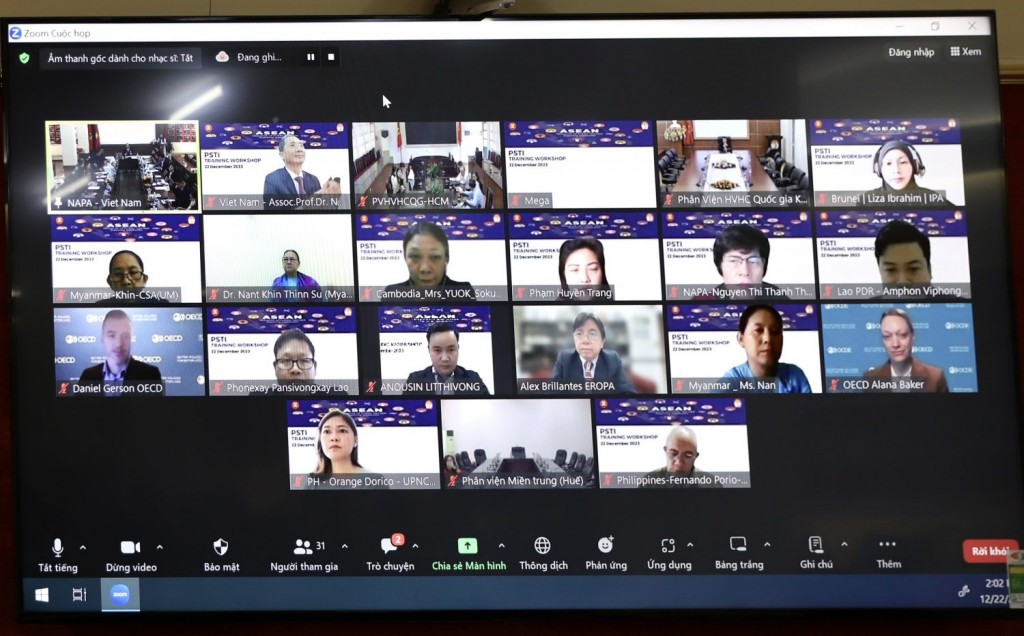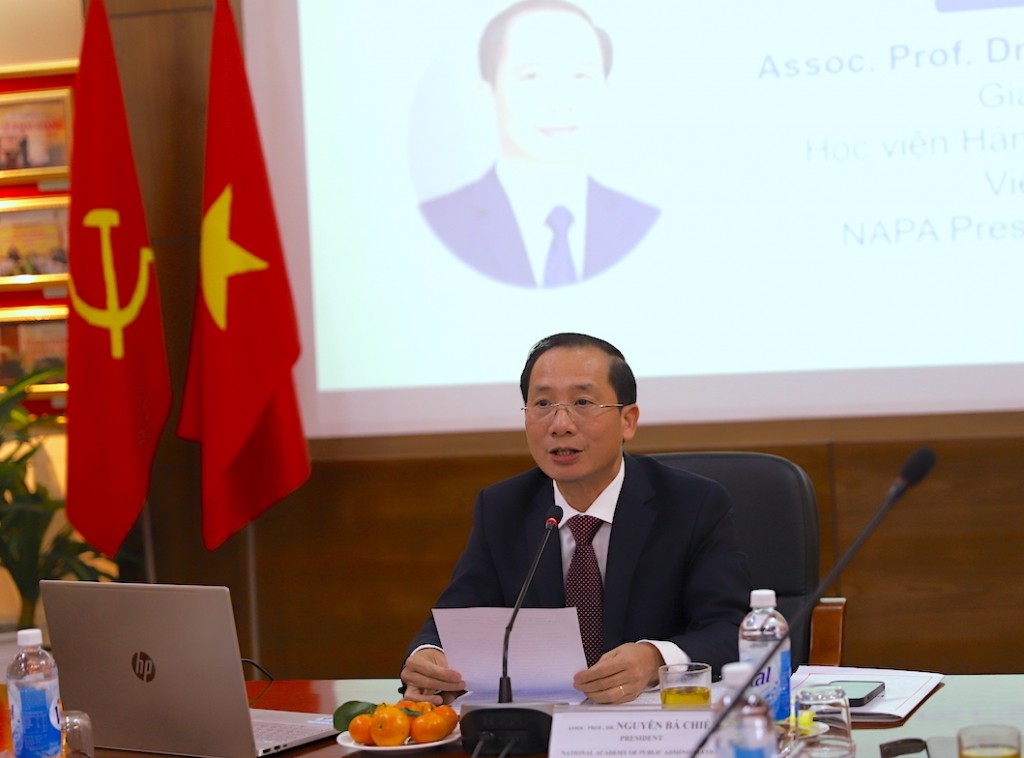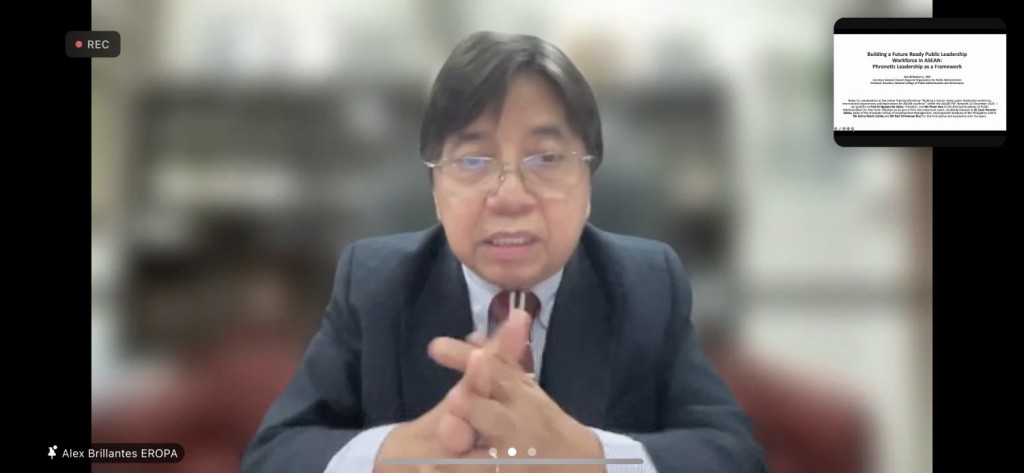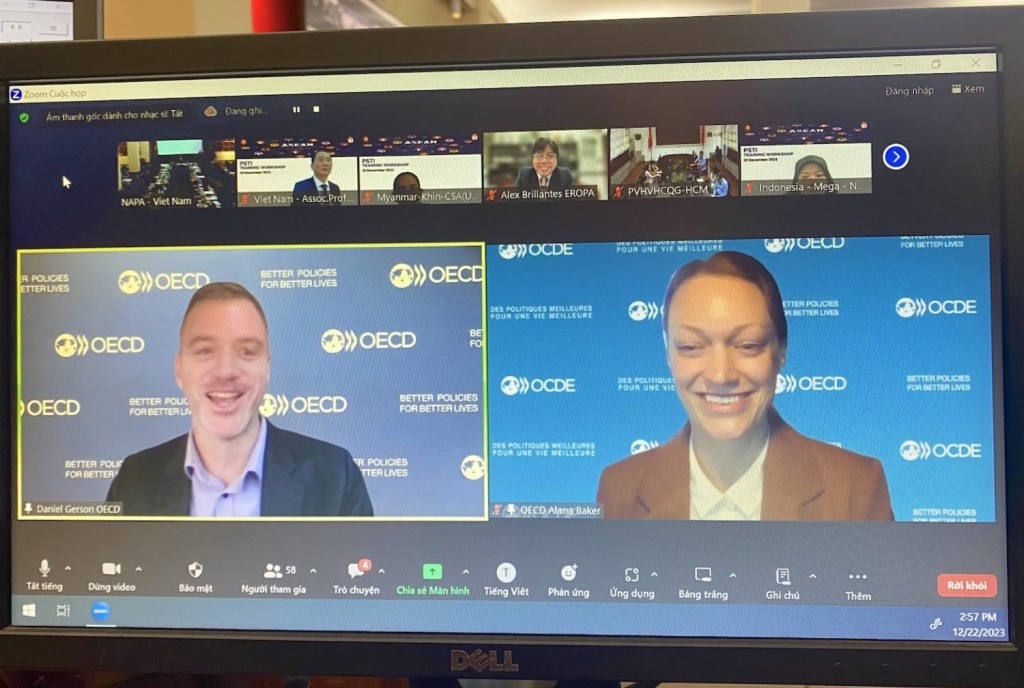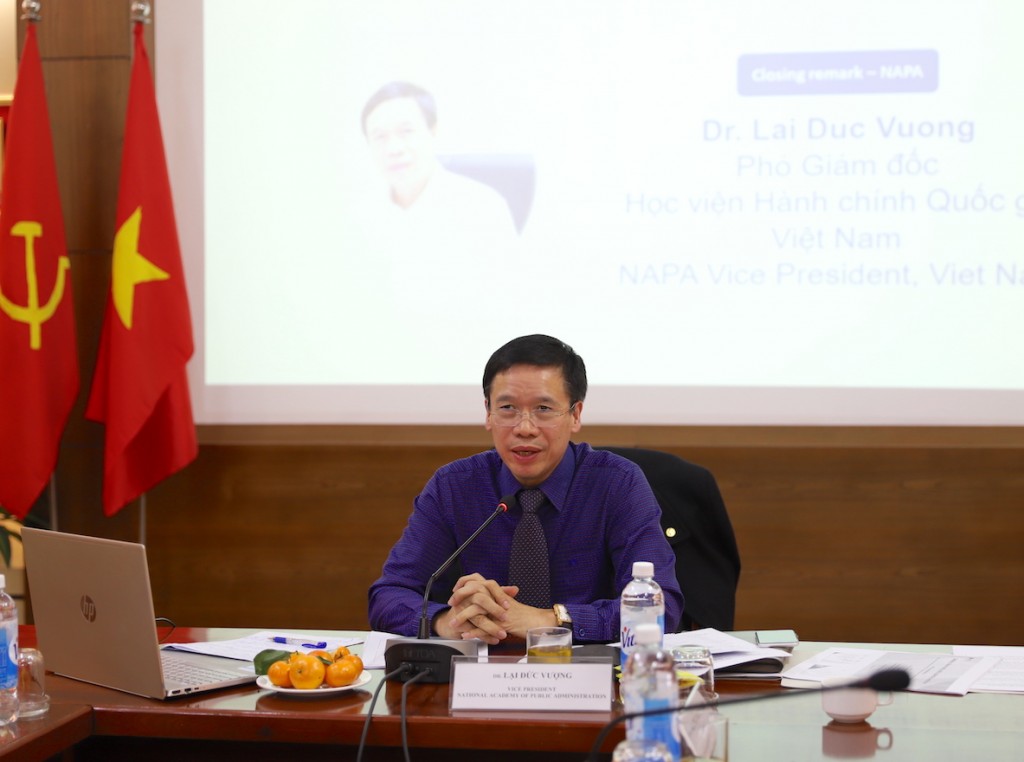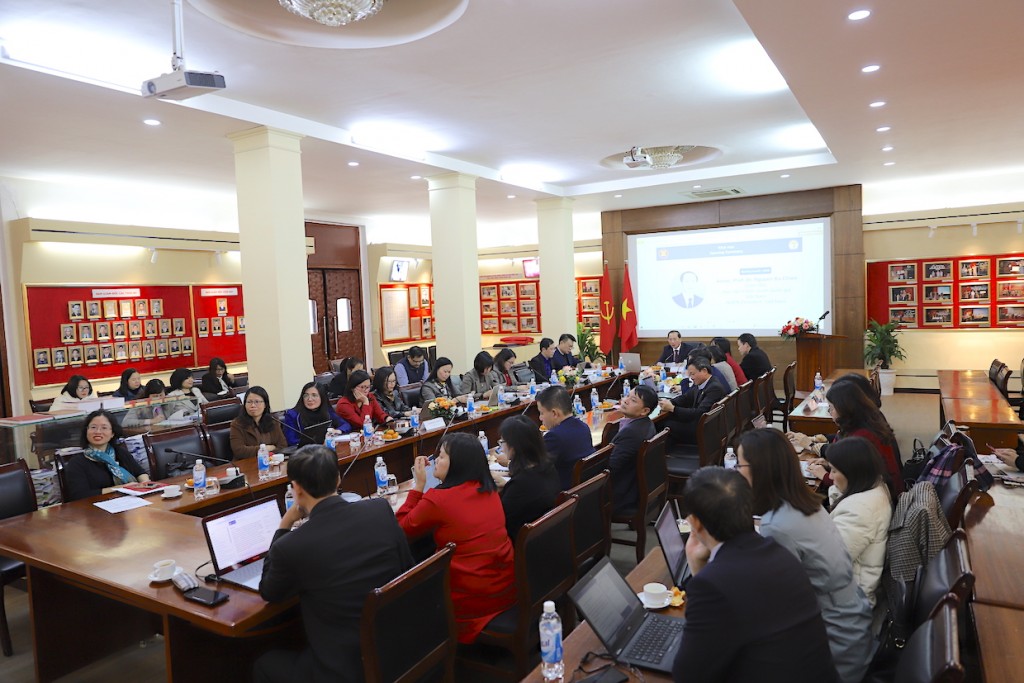On December 22, the National Academy of Public Administration (NAPA), as the convenor of PSTI Network term 2023 – 2023, organized a Training workshop, “Building a future-ready public leadership workforce: International experiences and implications for ASEAN countries” within the ASEAN PSTI Network activities in 2023. The Training workshop was held in a hybrid format with in-person participation in NAPA Headquarters in Ha Noi and virtual attendance of PSTIs, OECD, and NAPA Branch campuses in Ho Chi Minh City, Tay Nguyen, and Central Region.
Virtually attending the Training workshop from OECD, EROPA and PSTI (online) were Mr. Daniel Gerson, Head of Public Employment and Management, OECD; Ms. Alana Baker, policy analyst at Public Employment and Management, Manager of the OECD Network of Schools of Governmant (NSG), OECD; Dr. Alex Brillantes Jr., EROPA Secretary-General; Ms. Roslizawati Ibrahim, Assistant Director, Institut Perkhidmatan Awam (IPA), Prime Minister’s Office of Brunei Darussalam; Ms. Yuok Sokunthea, Deputy Director, Royal School of Administration, Ministry of Civil Service, Cambodia; Mr. Satya Pratama, Head of the Indonesian Civil Service Development Center (CSDC), under the National Civil Service Agency (NCSA); Mr. Phonexay Pansivongxay, Head of Training Division, Public Administration Research and Training Institute (PARTI), Lao Ministry of Home Affairs (MOHA); Dr. Khin Mar Myo, Pro-rector, Civil Service Academy (Upper Myanmar), Union Civil Service Board; Mr. Fernando M. Porio, Director IV of the Philippine Civil Service Institute (CSI), Civil Service Commission; Mr. Ariya Sakulkaew, Human Resources Expert, Acting Director of the Thai Civil Service Training Institute (CSTI), under the Office of the Civil Service Commission (OCSC).
On behalf of NAPA, Assoc. Prof. Dr. Nguyen Ba Chien, NAPA President and Dr. Lai Duc Vuong, NAPA Vice President co-chaired the Training workshop. Leaders of units, faculties, departments and divisions under NAPA and a large number of NAPA officials and lecturers were also in attendance.
In his opening remarks, Assoc.Prof.Dr. Nguyen Ba Chien warmly welcomed and respectfully thanked the leaders, international experts, academics, practitioners, and participants to attend the Training workshop. He emphasized that we are living in a world that is changing at an unprecedented pace and with unpredictable fluctuations that require the public service to constantly innovate to adapt to new contexts and meet new requirements of people, organizations and government. To build a public service that can adapt and operate effectively in the new context, it is necessary to develop public leaders and managers with the required capacity and ethical qualities to be ready for the future public service. Leaders are the key actors contributing to the performance of government, inspiring innovation, managing risks and taking responsibility for the public service performance. More than anyone else, leaders are the pioneers in innovation, leading the change process, leading public organizations to promptly grasp opportunities and steadfastly overcome challenges.
In response to the urgent need to build leadership capacity to prepare for future public service, as the convenor of the ASEAN PSTI network for the 2023 – 2024 term, NAPA organizes a Training workshop to create opportunities to share experiences and best practices in the world, especially in OECD and EROPA countries in preparation for ready leadership and management for the future public service.
Dr. Alex Brillantes Jr. attended the Training workshop with his presentation titled “Building a future-ready public leadership workforce in ASEAN: phronetic leadership as a framework”. According to him, phronetic leadership is a highly desired skill for leaders of the 21st century, especially among local government leaders. A phronetic leader will have a competitive edge in the demands of a rapidly changing environment, a VUCA (volatile, uncertain, complex and ambiguous) and BANI (brittle, anxious, non-linear, incomprehensible) world. Leadership has to take cognizance of the global and local context (glocalization) and also the imperatives of facing the challenges of the need to cooperate with ASEAN neighbors yet compete with them (coopetition) within the context of ASEAN integration. There needs to be a “phronetic” leadership element (originating from Japan). According to knowledge-based views, phronesis consists of six abilities (1) the ability to make a judgement on ‘goodness’; (2) the ability to grasp the essence; (3) the ability to create the ba; (4) the ability to articulate the essence; (5) the ability to use political power; (6) the ability to foster phronesis in others.
Mr. Daniel Gerson and Ms. Alana Baker from OECD, delivered their presentation “Building a future-ready public leadership workforce”. The speakers defined leadership as innovation (developing and bringing forward new ideas for changes to organizational processes, functions, policies and services); implementation (transforming political direction into effective and efficient processes and services); vertical (top-down: using people management to implement change in teams and organizations; bottom-up: leveraging the insights and wisdom across the organization, influencing decision makers for better policies and services); horizontal (inside-out: convening stakeholders and negotiating collective action; outside-in: leveraging the wisdom of the crowd and external competencies to achieve government objectives).
They also pointed out four trends shaping the future of leadership in the public service, including: (1) The goal of public service leadership will increasingly be to solve public policy challenges in innovative ways, supported by digital technology; (2) Public leadership will become increasingly data-driven, with large sets of workforce and performance data driving insights and informing management responses; (3) Public service leaders will lead increasingly diverse organizations with employees from a range of backgrounds on a range of contracts and in a variety of physical locations, flowing more fluidly in and out of organizations; (4) Leaders will need to be more involved than ever in workforce and organizational development.
OECD countries are taking action to develop leadership capabilities, such as:
The UK implements the “Government Campus Curriculum”, which focuses on a new initiative to bring learning back under one umbrella and with coherency (and data). Besides, it is an entire stream on leadership development.
Korea prioritizes e-learning (digital-oriented). This new e-learning platform lets employees be content creators, enables networking and interaction, uses “microlearning” content, uses AI, and takes advantage of new technology. Korea focuses on developing digitally-capable leaders from the start of the pipeline.
Israel uses simulations, field courses, and realistic media training to put leadership in real-seeming situations to build crisis skills before they are needed.
In Italy, the National School of Government has an extensive academic curriculum and also works with ministries to develop and recruit on competency (using frameworks). This program will last several months to recruit managers into positions and train them before they take up roles.
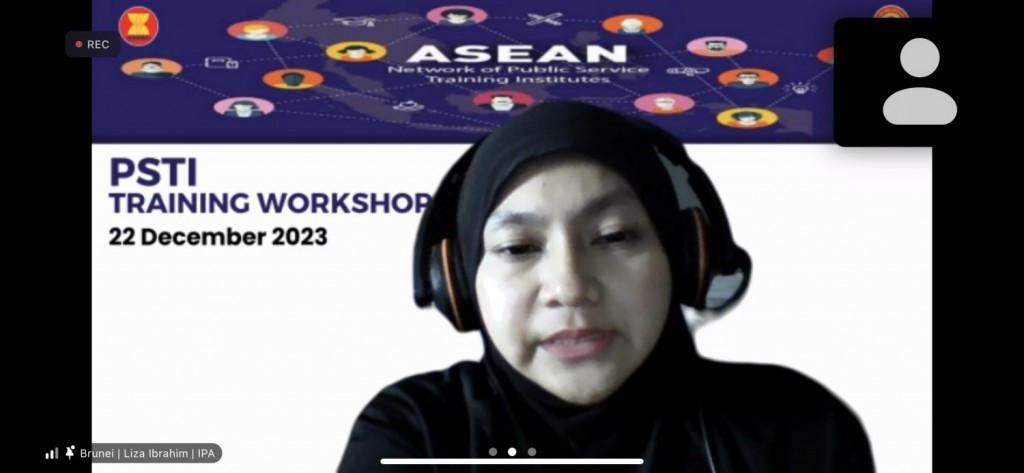
Ms. Roslizawati Ibrahim, Assistant Director, Institut Perkhidmatan Awam (IPA), Prime Minister’s Office of Brunei Darussalam, participating in the discussion session.
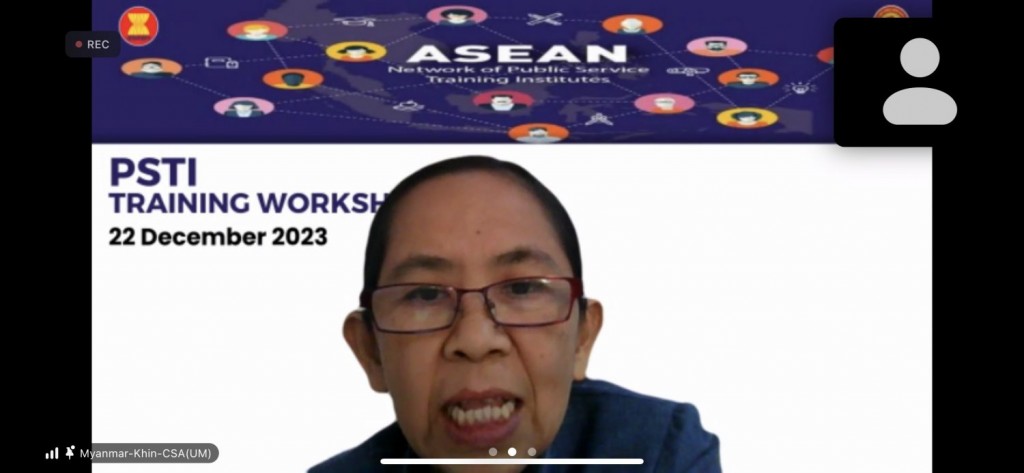
Dr. Khin Mar Myo, Pro-rector, Civil Service Academy (Upper Myanmar), Union Civil Service Board, participating the discussion session.
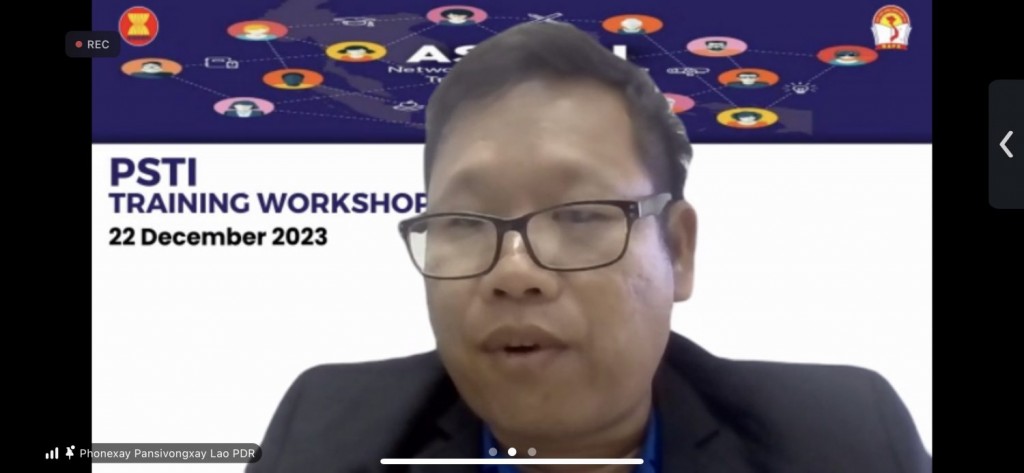
Mr. Phonexay Pansivongxay, Head of Training Division, Public Administration Research and Training Institute (PARTI), Lao Ministry of Home Affairs (MOHA), participating in the discussion session.
At the Training workshop, delegates from different countries exchanged opinions related to the issues of public leadership training, developing a capacity framework for public leaders and managers, the vital role of the ability to work in a multicultural and multi-ethnic environment, and enhancing working in a digital environment. It is necessary to organize training courses for leaders and managers in the public sector.
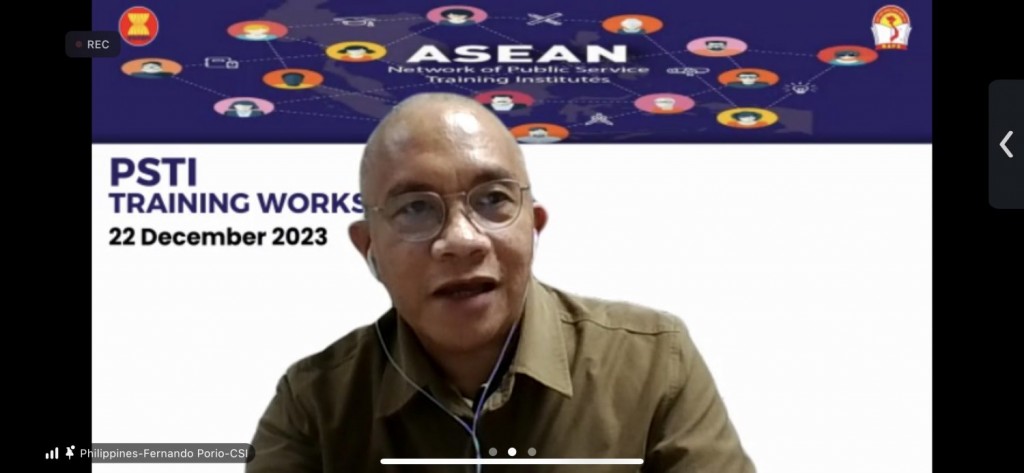
Mr. Fernando M. Porio, Director IV of the Philippine Civil Service Institute (CSI), Civil Service Commission, participating in the discussion session.
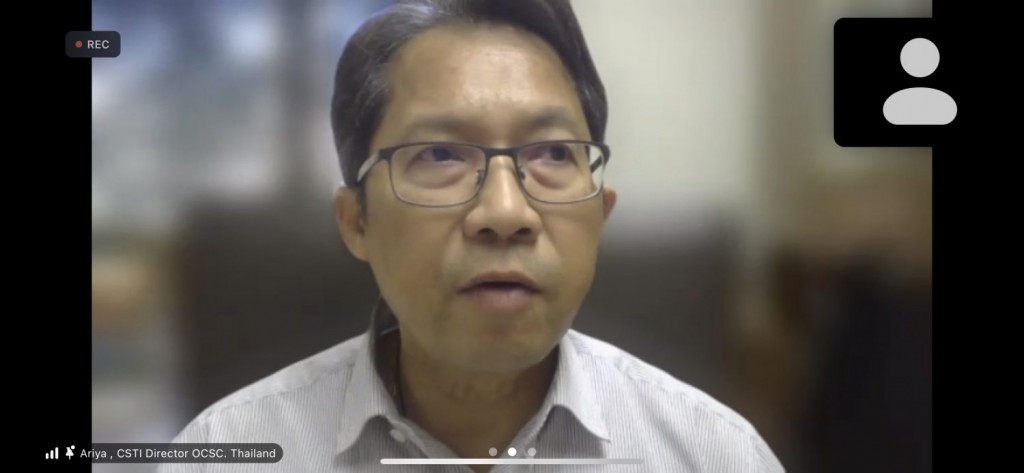
Mr. Ariya Sakulkaew, Human Resources Expert, Acting Director of the Thai Civil Service Training Institute (CSTI), under the Office of the Civil Service Commission (OCSC), participating in the discussion session.
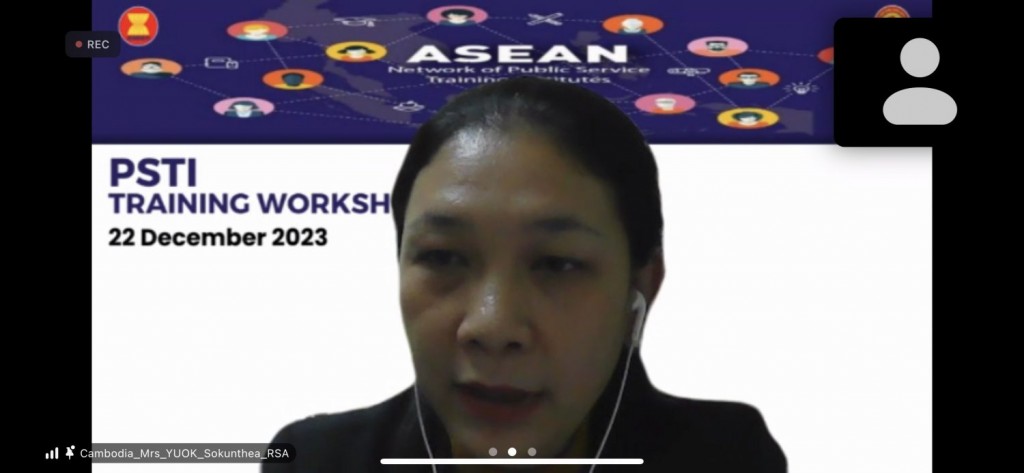
Ms. Yuok Sokunthea, Deputy Director, Royal School of Administration, Ministry of Civil Service, Cambodia, participating in the discussion session.
Participants also discussed building training models with small modules to suit public leaders and managers with time constraints, applying technology in training and public service delivery, improving the ability to develop short-term, medium-term and long-term plans to anticipate uncertainties and adverse problems that may occur, and provide timely response measures for each stage.
In his closing remarks, Dr. Lai Duc Vuong thanked the participants from OECD and PSTI for their active participation and sharing at the Training workshop. Through these insights, PSTI members can gain a perspective on the future-ready public service, identify challenges for the leadership and management of the future public service, and determine the essential capabilities for leaders to successfully lead the change process and innovate public service in response to the new context. On that basis, PSTI members can research and innovate leadership and management training programs and collaborate in building leadership and management human resources in the region.
The Training workshop also serves as a forum for exchange and partnership building, coordination in training among PSTI Network members, between PSTI members and international training organizations in the region such as EROPA and OECD. In particular, the results of the Training workshop are used to develop a leadership and management capacity framework for the future public service, thereby proposing ideas for collaborative development of leadership and management human resources in the region and training plans to improve the capabilities of public leaders and managers and faculty members within the PSTI Network activities.


